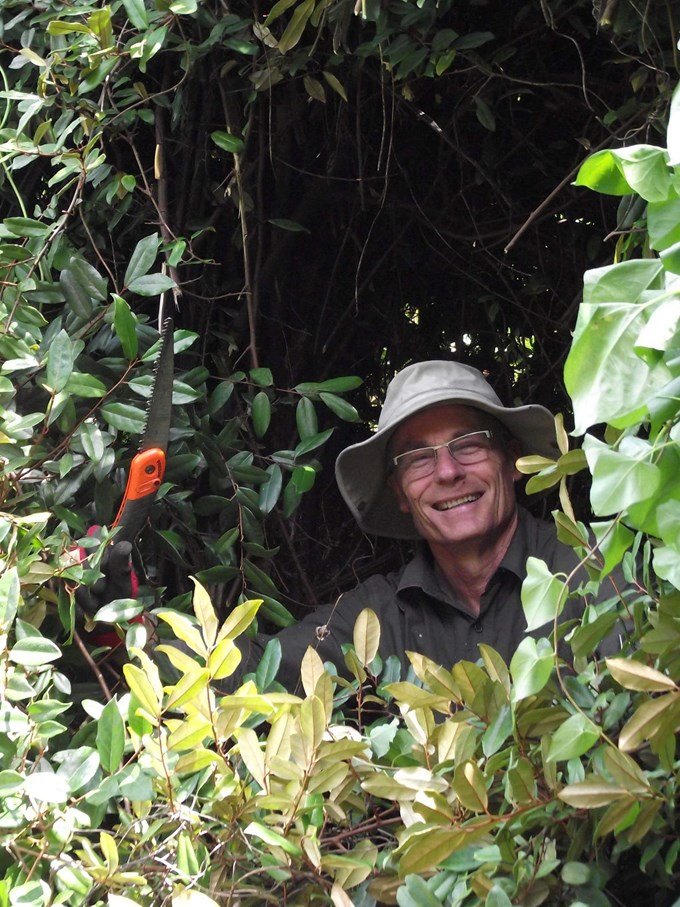When Richard Hursthouse isn’t nursing patients back to health he’s reviving pockets of native bush around Auckland. The day we speak to him, Hursthouse is organising a planting of 850 native trees in Centennial Park, Campbells Bay ahead of the weekend.
In his roles as Chair of North Shore Forest and Bird, the Pest-Free Kaipātiki Project and Tuff Crater, Hursthouse, who is also a GP, regularly sets aside days to help conserve native bush.
“I got involved because I saw we were going backwards ecologically. There is a lot of environmental challenges in Auckland – the government removed tree protection, there’s increasing pollution in the harbour from a mixture of mud and sediment – and I wanted to help.”Working with the volunteer groups dedicated to various areas of bush “in a complementary fashion with any work the council may do,” Hursthouse has seen a massive reduction in the amount of plant and predator pests in the areas he has been working in.
“At Tuff Crater for example, there’s been a drop in pest plants from 90 per cent to 20 per cent and rats from 60 per cent to less than 10 per cent,” Hursthouse says.
“The improvements have been thanks to everyone banding together to remove weeds and control predators and pest plants. We also have regular working bees in each of the areas.”
The weed guide
Keen to help spread understanding and awareness about pest plants and the impact they have on native bush, Hursthouse has spent the last two years creating a weed guide with North Shore Forest & Bird. This guide identifies and offers advice on organic and chemical control methods for 36 of the most common or invasive pest plants north of Taupo.
“It shows people how to identify and tackle pest plants in their own reserve or property," Hursthouse says.
"In order to achieve a predator-free status across New Zealand, we need a mass mobilisation of the community to work towards it. Volunteers can clear pest plants in a reserve, but if there are a lot of pest plants around a reserve, they will eventually creep back in. So everyone needs to know about pest plants and how to get rid of them.”
Get a copy of the guide
For more information about how to identify and dispose of weeds, pick up a copy of the Weed Guide at your local board office, download it, or email Northshore.branch@forestandbird.co.nz
to order copies.


